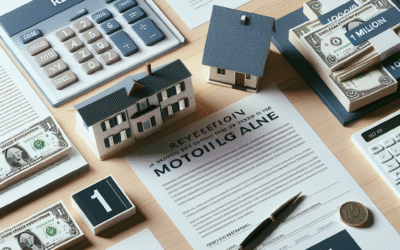Understanding 1st Home Loans
What is a 1st Home Loan?
A 1st home loan is a mortgage specifically designed for first-time homebuyers. These loans help individuals and families who are purchasing their first home by providing favorable terms and conditions. These loans typically have lower interest rates and may offer additional benefits like reduced down payment requirements.
Types of 1st Home Loans
There are several types of 1st home loans available, including:
- Conventional Loans: These are not insured by the government and usually require higher credit scores.
- FHA Loans: Backed by the Federal Housing Administration, these loans cater to buyers with lower credit scores and require a lower down payment.
- VA Loans: Available to veterans and active military personnel, these loans often require no down payment.
- USDA Loans: Designed for rural homebuyers, these loans also feature no down payment requirements but have specific eligibility criteria.
Benefits of 1st Home Loans
Lower Interest Rates
One of the primary advantages of 1st home loans is the potential for lower interest rates. Lenders often offer competitive rates for first-time buyers to encourage home ownership. Lower interest rates can significantly reduce monthly payments, making homeownership more affordable.
First-Time Homebuyer Programs
Many states and local governments offer first-time homebuyer programs. These programs may include down payment assistance, grants, or tax credits. They are designed to help first-time buyers navigate the home buying process and reduce financial burdens.
Eligibility Criteria for 1st Home Loans
Credit Score Requirements
To qualify for a 1st home loan, borrowers typically need a credit score of at least 620 for conventional loans. However, FHA loans may accept scores as low as 580 with a 3.5% down payment. It’s important to check your credit score and work on improving it before applying.
Income Limits
Income limits can vary by loan type and geographical location. Many first-time homebuyer programs have specific income thresholds. Make sure to research the limits in your area to understand your eligibility for various loan options.
How to Apply for 1st Home Loans
Step-by-Step Application Process
- Pre-Approval: Start by getting pre-approved for a loan. This will give you an idea of how much you can borrow.
- Find a Home: Look for a home within your budget and in your desired location.
- Submit Application: Once you’ve found a home, submit your mortgage application to the lender.
- Underwriting: The lender will review your application, verify your information, and conduct a credit check.
- Closing: If approved, you’ll move to the closing process where you finalize the loan and receive the keys to your new home.
Documents Needed for 1st Home Loans
When applying for a 1st home loan, you will typically need the following documents:
- Proof of income (pay stubs, tax returns)
- Bank statements
- Employment verification
- Identification (driver’s license or passport)
- Credit history
Common Mistakes to Avoid with 1st Home Loans
- Not Checking Credit: Failing to review your credit report can lead to unexpected obstacles.
- Ignoring Budget: Make sure to stick to your budget and avoid homes that are beyond your financial means.
- Not Shopping Around: Compare rates and terms from multiple lenders to ensure you are getting the best deal.
- Underestimating Costs: Be aware of all costs involved, including closing costs and maintenance.
Comparing 1st Home Loans
Fixed vs. Adjustable Rate 1st Home Loans
When choosing a 1st home loan, consider whether a fixed or adjustable rate mortgage (ARM) is better for you. Fixed-rate loans have a consistent interest rate throughout the loan term, providing stability in payments. On the other hand, ARMs often start with lower rates that can change after a set period, which may lead to higher payments later.
Lender Options for 1st Home Loans
There are numerous lenders offering 1st home loans, including banks, credit unions, and online lenders. It’s essential to research and compare their offerings, as they can vary significantly in terms of interest rates, fees, and customer service.
Frequently Asked Questions about 1st Home Loans
How Much Can I Borrow?
The amount you can borrow depends on your income, credit score, and debt-to-income ratio. Lenders typically allow borrowers to spend up to 28% of their gross monthly income on housing.
What Are Closing Costs for 1st Home Loans?
Closing costs can range from 2% to 5% of the loan amount. These costs include fees for appraisals, inspections, and loan origination.
Can I get a 1st home loan with bad credit?
It is possible to obtain a 1st home loan with bad credit, especially through FHA loans, which have more lenient credit requirements.
What is the minimum down payment for a 1st home loan?
The minimum down payment varies by loan type. Conventional loans may require as much as 20%, while FHA loans can require as little as 3.5%.
How long does it take to close on a 1st home loan?
The closing process typically takes 30 to 45 days, depending on various factors such as the lender’s speed and the complexity of the loan.
Are there any grants available for 1st home loans?
Yes, many states and local governments offer grants and assistance programs for first-time homebuyers. Check with local housing authorities for available options.
Conclusion on 1st Home Loans
1st home loans provide an excellent opportunity for first-time homebuyers to step into the housing market. With various loan types, benefits, and programs available, it’s crucial to understand your options and eligibility. By avoiding common pitfalls and carefully comparing lenders, you can make a well-informed decision that leads to successful homeownership. For more detailed information, consider visiting the U.S. Department of Housing and Urban Development or Fannie Mae.




0 Comments